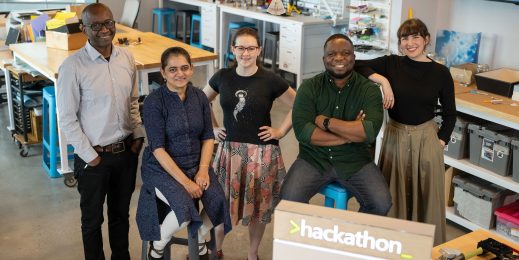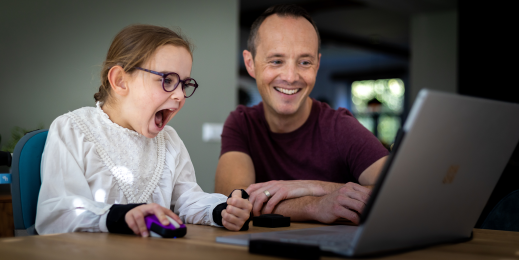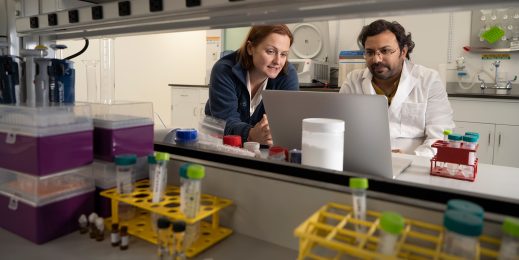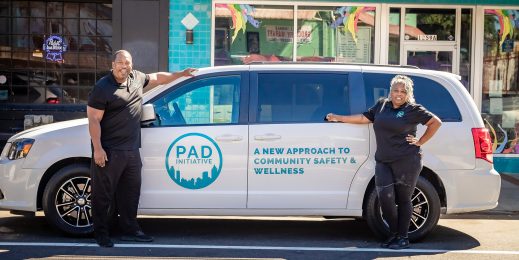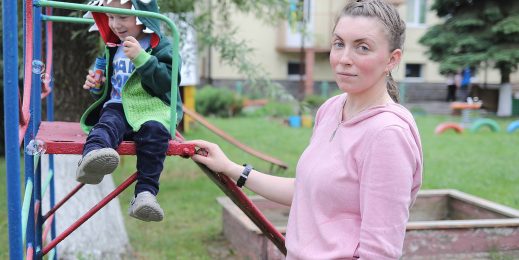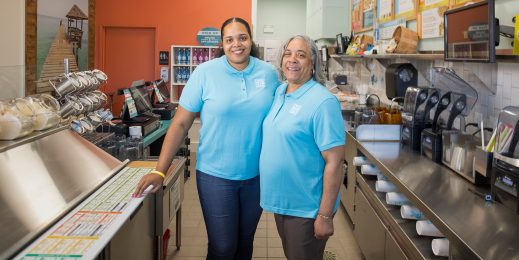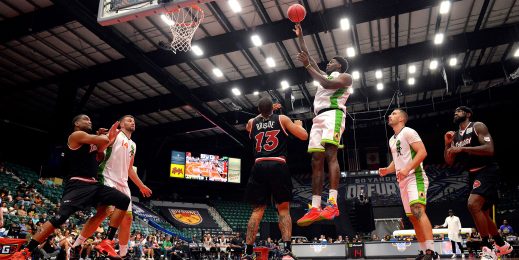
New tracking device could help children with autism
Last year, when his friend went missing, Vinny Pasceri was struck by how helpless he felt. All he could do was tweet and post about the search for his friend, a fellow Microsoft employee believed to have vanished from a popular hiking spot north of Seattle.
The ordeal inspired Pasceri to want to help others, by building a new kind of tracking system to prevent kids from going missing and helping them if they do. He decided to focus on special needs children prone to wandering, a vulnerable group that requires intense supervision.
The prototype, called Lighthouse, has since become a much hailed idea, winning a first place award in last year’s Global Startup Battle. The event is considered the largest startup tournament in the world, with 25,000 international participants last year.
“Our purpose is to keep children safe in school,” says Pasceri, a Microsoft program manager, of the Lighthouse team. “We think there are three key questions: Where are they? Are they with the right people? And do they need help?”
Teen’s death prompts talk of tracking devices
Tracking devices for kids with autism and other developmental disorders have gained traction in recent months, after the death of Avonte Oquendo, an autistic teen who wandered away from school in New York. His remains were found on a river bank three months later, in January of 2014.
The tragedy prompted the U.S. Justice Department to make an existing grant available for voluntary GPS trackers for special needs kids. It also motivated Sen. Charles Schumer of New York to propose a $10 million-a-year grant for trackers and training to protect special needs children prone to wandering. Schumer’s bill is pending in Congress.
About half of autistic children are prone to wandering, according to research in the journal Pediatrics, leading to the deaths of more than 60 autistic children since 2008, the Associated Press reported. Many drowned.
Months after the body of 14-year-old Avonte was found along a river in Queens, New York, a 4-year-old boy with autism was found dead in a pond in South Carolina. He had disappeared from his grandmother’s house two days earlier.
“At the (National Autism Association), we often hear from parents who have a child who cannot sleep, forcing caregivers to barricade doors and take shifts staying awake,” wrote Lori McIlwain, the association’s co-founder and board chairperson, in The New York Times.
“Others are so desperate that they hide their child’s shoes to slow them down in case they escape.”
McIlwain, who lives in Raleigh, North Carolina, says her 15-year-old autistic son was prone to wandering when younger and wore a tracking device for years. She says many parents need help and that she likes Lighthouse’s concept.
“I love the fact that in order for teachers to use these types of devices, they have to be aware of the problem,” McIlwain says. “Just the awareness alone is going to keep kids safer.”
Lighthouse sends immediate alert if child is unsupervised at school
Unlike GPS trackers, which pinpoint location, Lighthouse tracks proximity to a caregiver through Bluetooth Low Energy. The relatively new, wireless radio technology pairs easily with mobile apps, and is often used to connect phones to smart home locks, wearable fitness trackers and other devices.
With Lighthouse, a student wears a beacon in a wristband or other small device. It’s linked to an app on the phone of every teacher and specialist on the student’s schedule. The app registers when the student is within range of each caregiver. It sends a missing-kid alert if the student is out of range.
That alert enables a quick start for a search, the main benefit of Lighthouse over GPS, Pasceri says. GPS can track location, but can’t tell if a child is with the right teacher or specialist. Also unlike GPS, Lighthouse, which is designed for use in a school setting, works well indoors and can go up to a year without recharging.
“The thing we were going after is reducing the time for someone to know that a kid is missing,” Pasceri says.
In Avonte’s case, it took authorities 18 minutes to realize he was gone, according to reports. “Something like Lighthouse could have prevented the Avonte situation,” Pasceri says. He adds that the technology could help other caregivers, including those in nursing homes.
The Lighthouse team – composed of three other Microsoft employees, an iOS developer and a University of Washington student – won Seattle’s education-themed Startup Weekend EDU last year, before their global win. They plan to meet with more mentors and teachers to refine Lighthouse for different platforms, says Pasceri, who works on Microsoft mobile productivity apps.
The victory didn’t change the disappearance of his friend, Krishna Venkatesh, a program manager last seen Oct. 15, 2014 on Microsoft’s Redmond campus.
But it could change the lives of others.
“There are people who go missing, and it’s awful,” Pasceri says. “Ultimately, I wanted to do something that could make a difference.”
Lead image: The Lighthouse team includes (from left) Jeff Davis, Tanya Dastyar, Vinny Pasceri and John Griffin. Not pictured: Liang Frank Chen and Louisa Fan. Photo by Scott Eklund, Red Box Pictures.







